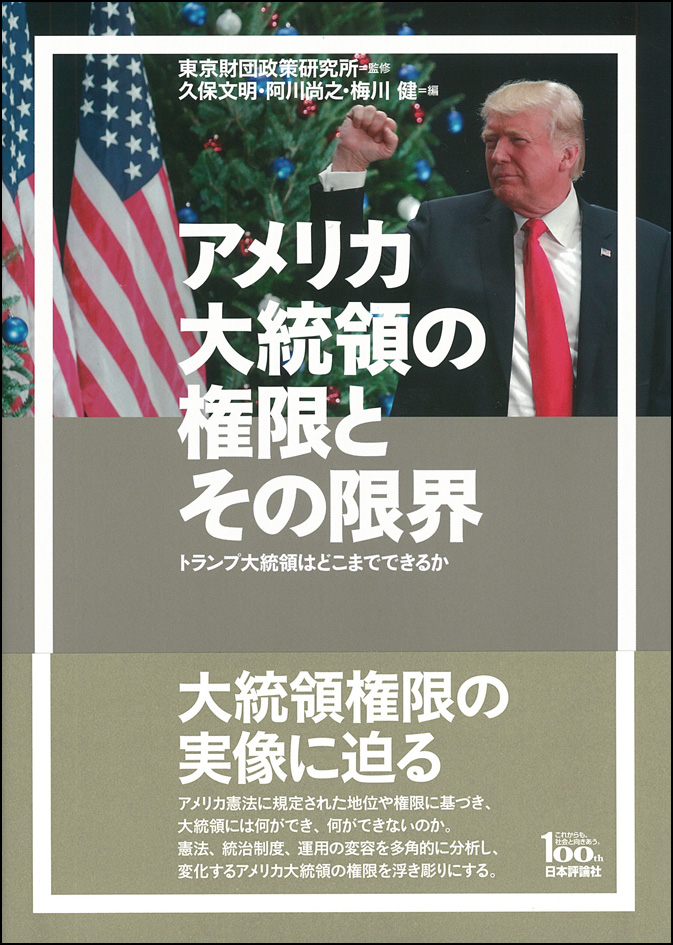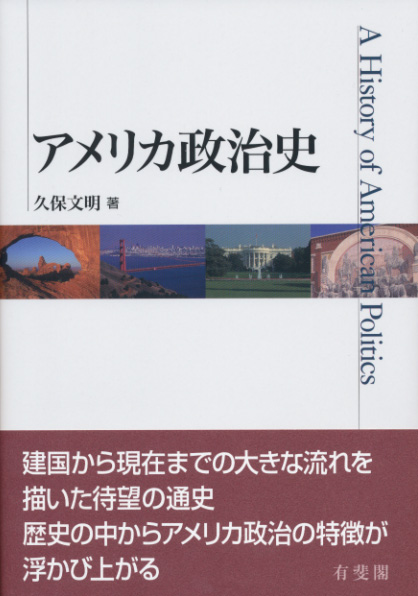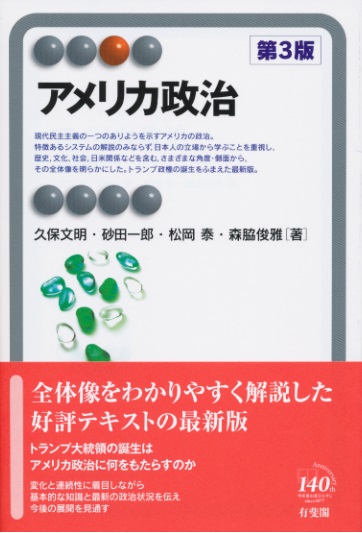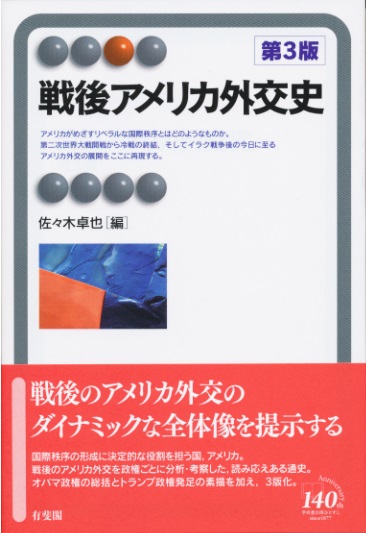
Title
America Daitoryo no Kengen to sono Genkai (Powers of the President of the United States and Limitations Thereon - How far can President Donald Trump go?)
Size
192 pages, A5 format
Language
Japanese
Released
May, 2018
ISBN
978-4-535-52301-2
Published by
Nippon Hyoron sha co., Ltd.
Book Info
See Book Availability at Library
Japanese Page
Since his inauguration, U.S. President Donald Trump has issued numerous presidential orders, making big headlines in newspapers. Many of those who have been coming across such news reports might be left with the impression that the president of the United States has enormous powers.
Needless to say, Japan has a parliamentary system of government. And it is the bias arising from having this system at home that often poses an inevitable challenge when Japanese people look at politics in other countries. When we look at American politics, which operates under a presidential system, we have an irresistible tendency to do so through the lens of a parliamentary system. For instance, Japanese correspondents reporting from Washington D.C. tend to focus on the coverage of the White House and the Department of State. As a matter of fact, however, key decisions are often made in Congress. Indeed, neither the president, the Cabinet, nor the executive branch can introduce any bills, including budget bills, to Congress.
At the same time, it is also important to understand the uniqueness of the U.S. presidential system because, while most presidential systems—including those in France, Russia, South Korea, and many countries in Latin America and Africa—grant significant powers to the president, U.S. president’s powers are extremely limited, probably among the weakest in the world. A simplified characterization of presidential powers in the United States would be that U.S. president is extremely weak on the legislative front, i.e., in dealing with Congress, but extremely strong on the executive front, i.e., in taking control of the executive branch.
With a particular focus on President Trump as a case example, this book discusses the powers, authority, and influence of U.S. president, which are often misperceived in Japan, revisiting the history and intended objectives of the system while at the same time analyzing new phenomena emerging in recent years and under the current administration. The book points out that what we call “daitoryorei” in Japan—which literally translates as “presidential order”—has various kinds, and that the force and effect of such directives are quite limited as they are based on legislation by Congress. Lately, how to manage the relations with state governments has become a source of headache for President Trump, as state governments—Democratic state attorneys general in particular—have frequently sued President Trump and federal courts have often ruled in favor of state governments. In contrast, there are many policies that can be easily implemented at the president’s discretion, as has been the case when the United States withdrew from the Paris Agreement and the Trans-Pacific Partnership (TPP).
Considering the sudden U.S.-North Korea summit in June 2018 or U.S. trade wars with the European Union and China that have been escalating since the beginning of 2018, we must not underestimate the powers of U.S. president especially in such areas as foreign policy, national security, and trade policy.
However, we must beware that President Trump is not the first president with a propensity to make bold use of presidential power as the trend of using presidential power had been building long before him, particularly during the presidency of Barack Obama. Now that bitter confrontation with Congress—whether over illegal immigrants or global warming and despite policy preferences—has become the norm, U.S. presidents in recent years have been using all kinds of ways to achieve their policy goals. This book is meant to reveal a dimension of American politics as such.
(Written by KUBO Fumiaki, Professor, Graduate Schools for Law and Politics / 2018)



 Find a book
Find a book





